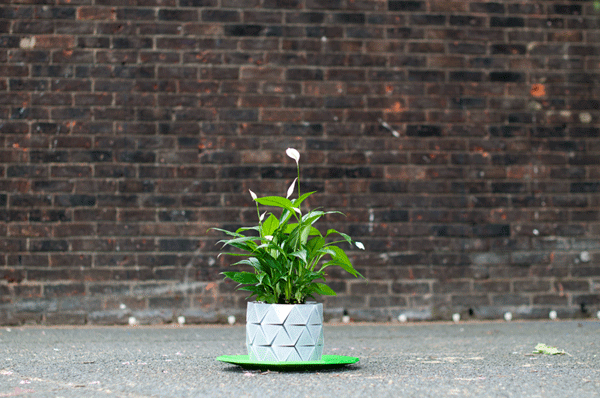Growth, inspired by the Japanese art of origami, can transform itself as the plant grows. It was designed by London-based duo at Studiotiod Ayaskan, aiming to make planters more sustainable than ever.
“In nature, everything evolves, adapts, grows, blooms, degrades, dies, gets absorbed, reused,” the designers, Bike and Begum Ayaskan, told Contemporist. “The modern approach to building is the opposite. Here, things exist in stages: objects are produced, used, discarded… Growth, through it’s carefully calculated origami pattern, mimics nature’s ability to grow and transform by unfolding over time, bringing these qualities to the manufactured object.”
More info: Studio Ayaskan

“We were drawn by the idea of having the opportunity to tell a story between an object and its inhabitant, (a plant pot and a plant),” – Begum and Bike Ayaskan.

“We were very much interested in the interaction, the two had with each other. We wanted to show that even a very simple object, like a plant pot, could be improved and changed by understanding its life cycle and implementing behaviour patterns through geometry and structure.”

“The pots are made up of polypropylene. A mesh, made up the same material is then attached to the base, allowing the water to drain out. The facades of the pots are then folded into its initial stage, ready for a plant to be potted. The material is very resilient.”

“To come up with correct origami pattern we initially started out with experimenting with a lot of origami patterns. Once we chose the pattern we were working with, we had to figure out the trigonometry behind the shape so we calculated the ratios that would give us the exact shape we wanted.”

“We are currently in discussion with manufacturers to get Growth into production. We are aiming to have them ready in the next few months and also add a few new colours”


You may also enjoy:













Discussion about this post